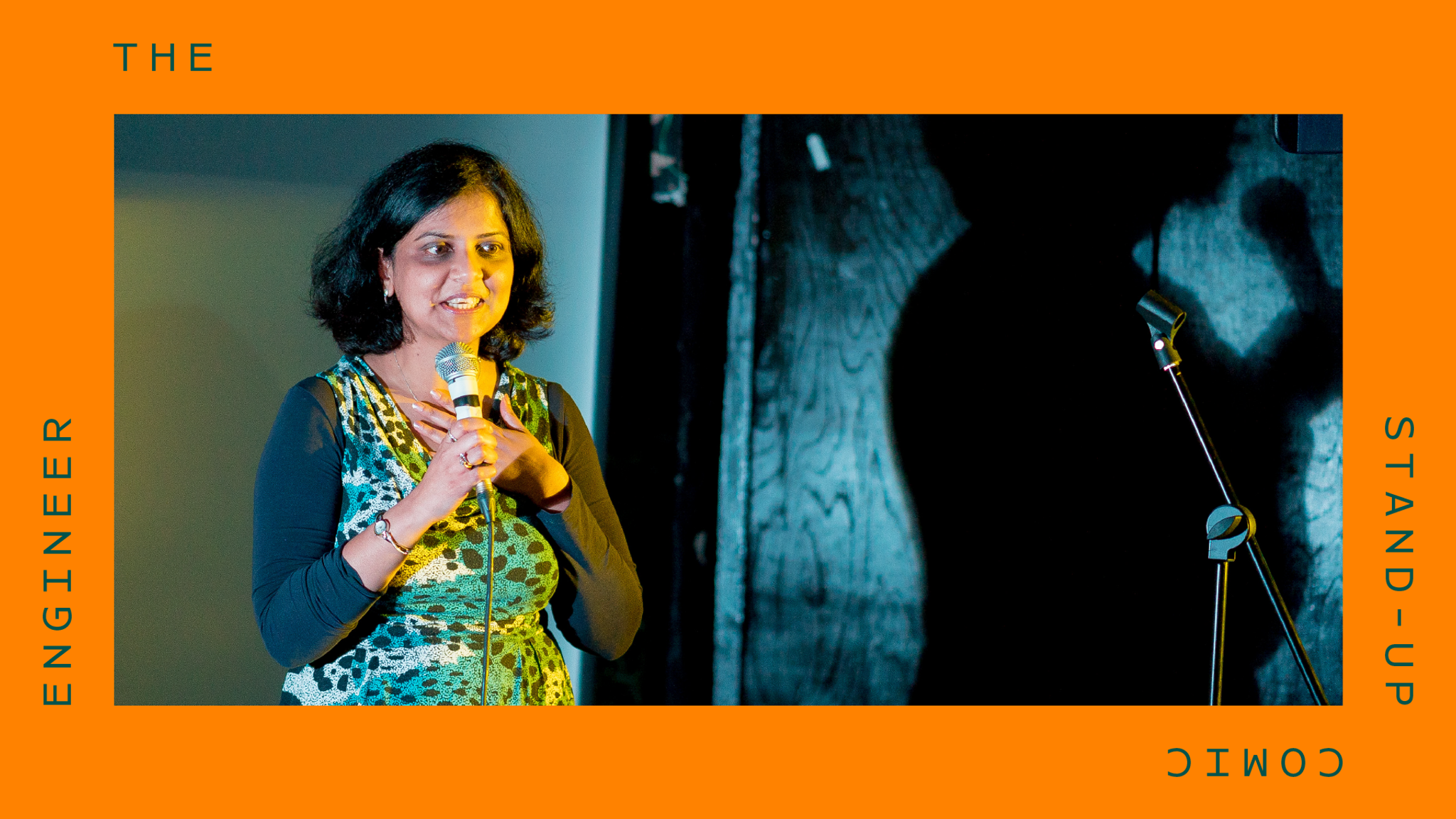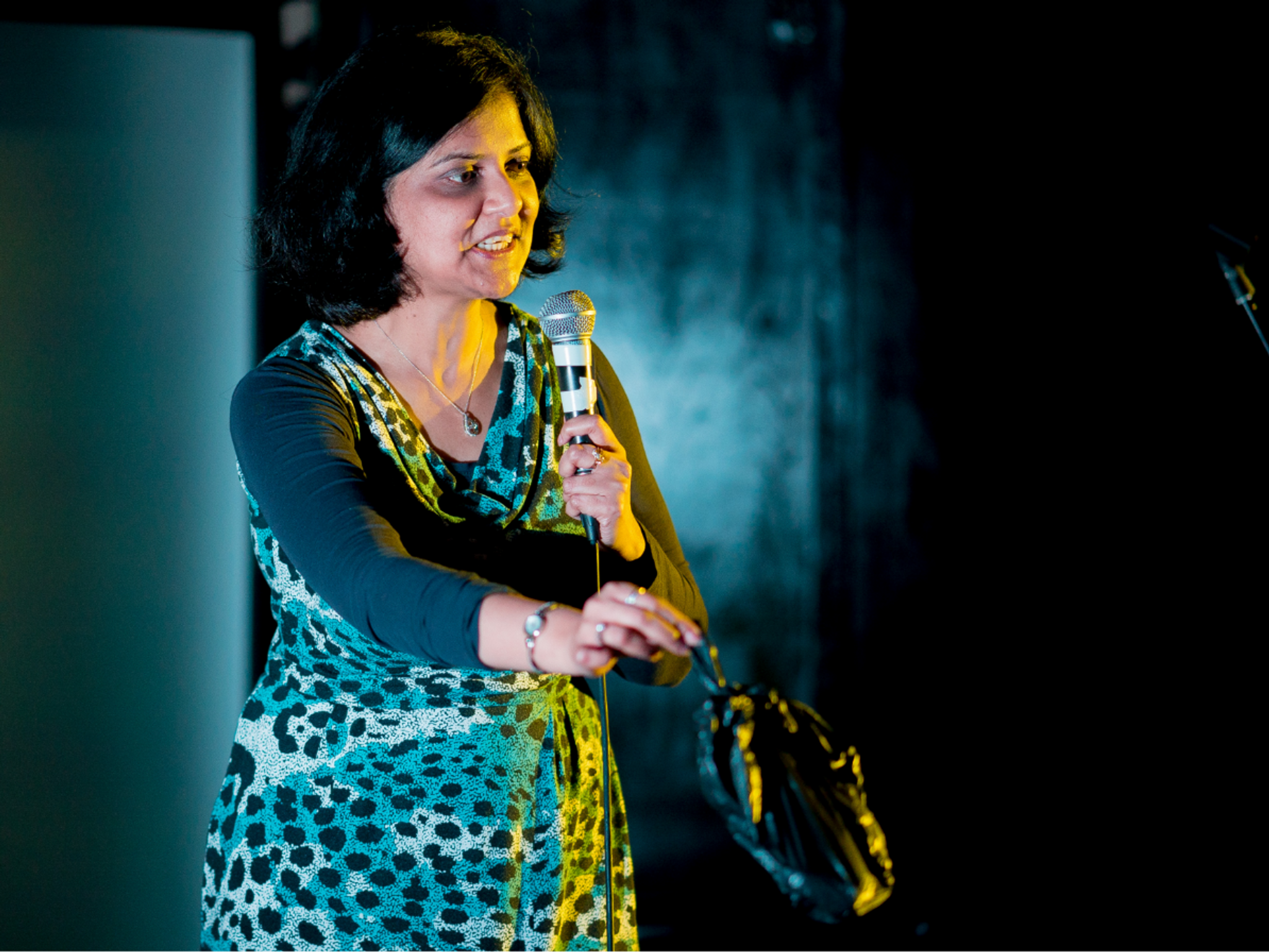Toilet humour: how stand-up comedy can tackle global sanitation issues

In September 2022, we saw long queues in London when people waited to pay their respects to the Queen. At the peak of it, the ‘Queen’s Queue’ was around 10 miles long with a maximum wait time of 24 hours. After thinking about how profound this event was, the first question that came to my mind was: are there enough toilets for the people queuing? Yes, I am an engineer who loves talking about poo.
As an academic, my mission is to provide every person on this planet with basic infrastructure services – and this includes toilets. I talk about this on stage as an amateur stand-up comedian to raise awareness on the scale of this challenge.
In 2020, 3.6 billion people around the world lacked access to safely managed sanitation services – nearly half of the global population. This includes nearly 500 million people practising open defecation. Women and children are particularly challenged by gaps in sanitation as they have to queue for hours to use public facilities, are more vulnerable to violence and are less likely to be able to afford to pay for clean toilets. Women and girls are the ones typically burdened with collecting water for hand washing, hygiene and cleaning houses and toilets. Climate change is making this challenge more acute as they have to walk longer in extreme weather conditions to access toilets and bring back clean water, which is getting scarce and is more exposed to contamination due to flooding.
Safe sanitation can reduce the burden of preventable diseases. For example, unsafe drinking water and sanitation contributed to 829,000 diarrheal deaths (60% of total deaths) in 2016. Every dollar invested in clean water and sanitation gives a return of $4.30 in terms of reducing health care costs, improving education and other gains.
My research focuses on highlighting the power of safe sanitation. Sanitation is not just about providing a service, but about offering wide-ranging benefits to tackle climate change, health, educational attainment, justice, equity and wellbeing.
Since 2017, I have been leading an interdisciplinary team of experts at UCL to show that sanitation is non-negotiable for achieving the UN’s Sustainable Development Goals (SDGs). We evidenced links between sanitation and all 17 Goals – as well as 130 out of the 169 SDG Targets. Using the SDG-related research as guiding principles, our team is now collaborating with Water Aid and eThekwini Municipality to advocate for investment in sanitation. The UCL-Water Aid team co-developed a policy brief and visual outputs to influence ministers, technocrats and funders working in the sanitation sector.

Prof Priti Parikh performing stand-up comedy. Photo: Steve Cross, scienceshowoff.org
“I use ‘poo humour’ as a means of drawing attention to the extraordinary challenge that faces us”
Sanitation is the unloved twin of water supply and has suffered from decades of under-investment. The sector has also seen a range of make-shift solutions which focus on building toilets but not the systems for collecting, transporting, treating and recycling human waste. In resource-challenged settings, often the emphasis has been on solutions which are cheap to build without a consideration of whether they are affordable to maintain, sustainable and climate resilient.
I use ‘poo humour’ in stand-up comedy as a means of drawing attention to the extraordinary challenge that faces us. By sharing the day-to-day inconveniences of people who do not have access to sanitation, I bring to light how difficult life can be without toilets. My recent production with BBC Worldwide talks about ‘flying toilets’, where people have to sling plastic bags to dispose of excreta, to show the daily struggles of those without sanitation facilities.
There is a perception that this is just a challenge in low- and middle-income countries, but this is not true. We all have had bad toilet days during our travels or when we attempt to access public toilets. Even Dr Who suffered the indignity of flying poo during his travel to Elizabethan England – see the episode ‘The Shakespeare Code’.
Comedy is a powerful tool which can bring issues to life. Often academic papers and long reports can be inaccessible in highlighting the lack of dignity and pride for those struggling to access basic sanitation services. People are surprised to hear that as an engineer I can perform stand-up comedy.
I am hoping that the comedy will bring in more investment and action for the sanitation sector. I want to extend my comedy skills to talk about the climate crisis facing us and enabling access to clean energy for remote communities on this planet. I firmly believe that comedy has the power to deliver this transformation.


